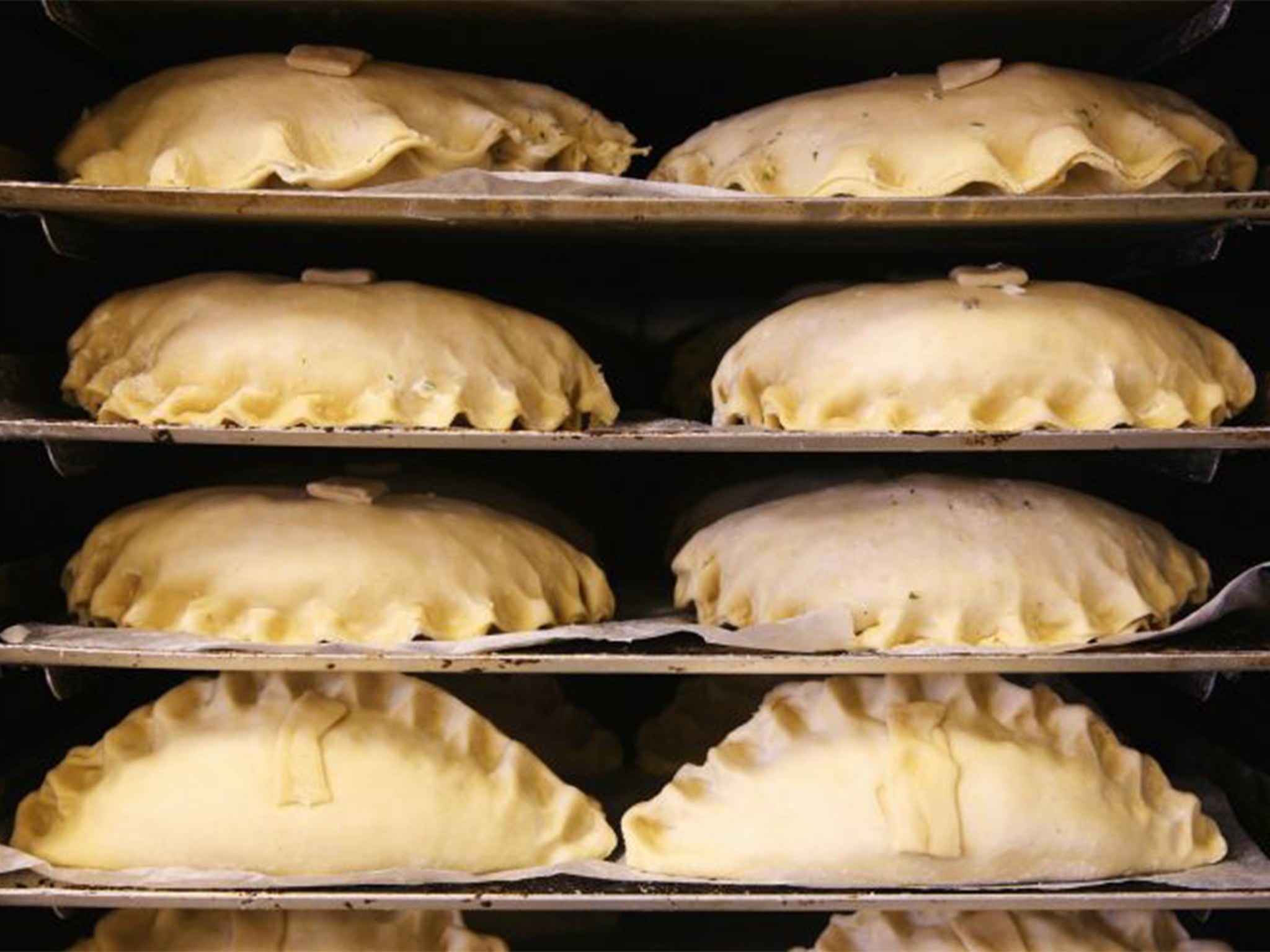Businessman pledges to build Britain's first Cornish pasty museum
Malcolm Ball hopes to 'celebrate the rich history of the pastry treat' – although a small Mexican town has beaten him to it

A businessman has pledged to create “Planet Hollywood with a Cornish twist” by opening Britain’s only Cornish pasty museum – but can’t call it a world first, as Mexico has already beaten the West Country to it.
Malcolm Ball, who is based in Oxfordshire but proudly asserts the pasty’s home county as his birthplace, hopes to open a “living attraction that celebrates the rich history of the pastry treat” near St Austell by next July – thus ending the indignity of the globe’s only example being 5,000 miles in Real del Monte, Mexico.
Mr Ball said visitors would be able to ‘wine and dine’ on local food, drink and pasties while “surrounded by artefacts associated with the history of the Cornish pasty, from the Middle Ages to the present day”.
Mr Ball, the chief executive of WMC Retail Partners, which used to run Old Spitalfields Market in London, said: “We are promoting the heritage of tin mining and the pasty. And let’s not have a situation where the only Cornish pasty museum is in Mexico.”
Real del Monte, has been twinned with Redruth, Cornwall, since 2008, and stole a march on the county by opening its Cornish pasty museum in 2011.
The Mexican town had been introduced to the pasty by miners who came over from Camborne and Redruth in the early 19th Century, offering their expertise to help redevelop the area’s silver mines.
The Cornishmen took with them a snack whose history can be traced back to at least the 13th century, and whose shape was perfect for anyone having a lunch break down a tin mine.
The miner could hold the pasty by its crimped edge, which he could then discard, reducing the risk of him touching what he did eat with hands contaminated by the arsenic that was also found in Cornish tin mines.
The snack received EU Protected Geographical Indication status in 2011, meaning only those made in Cornwall and following the traditional beef, swede, potato and onion recipe can be legally sold as Cornish pasties.
We are promoting the heritage of tin mining and the pasty. And let’s not have a situation where the only Cornish pasty museum is in Mexico
But Mr Ball – born on a smallholding in Illogan, near Redruth, but now living in Thame, said he was “absolutely staggered” when he couldn’t find a single Cornish pasty-based visitor attraction in the whole of the UK.
He now hopes to invest a six-figure sum in creating a worthy rival to the Mexican museum inside Cornish Market World, near St Austell, which is run by his company.
Mr Ball said the museum will contain a farm shop and Cornish food and drink, and he called on pasty makers past and present to help him fill it with artefacts.
“I’m calling on them to look in their back rooms,” he said. “They must have old photos, old tools, old stoves and ovens that specialised in making the perfect Cornish pasty. We could bring it all together to tell a fantastic story.”
Subscribe to Independent Premium to bookmark this article
Want to bookmark your favourite articles and stories to read or reference later? Start your Independent Premium subscription today.

Join our commenting forum
Join thought-provoking conversations, follow other Independent readers and see their replies